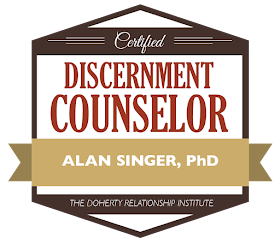Community means a lot more to family well being than a street address. Community is support, camaraderie, and education. This post, which is my monthly Home News Tribune column is a description of the Gush Etzion communities of Israel, located just south of Jerusalem.
On a recent trip to Israel, I had the opportunity to have coffee with Mr. Shaul Goldstein, who is the mayor of the Gush Etzion Region of Israel. Located just south of Jerusalem, the communities that make up the region are home to over 3700 families. They range from large cities such as Alon Shvut, to Mayor Goldstein’s home town, Neve Daniel, which started with 17 families and now has 400. Mayor Goldstein speaks glowingly of his neighborhood, which is where he was raised and together with his wife of 25 years, they are raising their 7 children here as well. I learned that, not only are these beautiful communities, but nurturing and sharing as though each community is a big family.
When our discussion turned to how communities support couples and families, Mayor Goldstein explained the concept of “chai kehilati” which means community life. “I will give you an example. In one of our towns Karmei Tzur, there are many Peruvian immigrants, but some of them are uncertain of their family roots. So they undergo a mini-conversion to Judaism which requires another Chupah (wedding canopy). Recently, a couple went through that process and the entire wedding ceremony and reception were sponsored by their community. The couple had absolutely no family in Israel and can you believe it? The community decided we are your family now.”
“In the neighboring town of Tekoa, they have a wonderful custom for honoring newlyweds. The town hosts an evening during the week of blessings (Sheva Brachot) that follows the wedding. In the middle of the town, there is a great lawn, and that’s where they make an enormous party. The entire town shows up to dance, sing and wish the new couple well in their life together.”
Mayor Goldstein described the communal gathering that takes place after Sabbath morning services; the Kiddush. “For happy occasions such as a circumcision, naming a baby girl, Bar or Bat Mitzvah, you cannot imagine the response of the community in hosting a Kiddush. One family prepares the fruit, another the cakes, another the fish, another the paper goods and it is truly remarkable when the whole town participates in the preparation and then celebrates together.”
He described the intriguing concept of the “Gemach” in each town. It is a Hebrew acronym for doing acts of kindness for others. “Families donate appliances, furniture, even money,” explained Goldstein, “and it is a free loan society which is available to all individuals and families in the town.”
He added, “People really do care about each other here. When you read the weekly Sabbath Newsletter that each community prints, you often see in the back section, this one family wants to thank this other family and you don’t know why, and you don’t ask. The story is private, but the expression of appreciation is public.”
There is also generous support for families when they experience the sad side of life-cycle events. When Mayor Goldstein lost his father several years ago, he spent the week of mourning (shiva) in a small southern Israeli town that had no religious community to speak of. “Requiring ten men to say the daily prayers, dozens of my neighbors came before work each morning to make the quorum and again late in the day for the afternoon and evening prayers.” He remembers how many neighbors drove over an hour in each direction on each day of Shiva so that he could say the Kaddish (memorial prayer). “That is what I call community support. I was so touched by their efforts on my behalf.”
There is much that we can learn from these communities about acts of kindness in our own neighborhoods and within our own extended families. To participate in the remarkable projects of the Gush Etzion Foundation please visit www.gush-etzion.org.il
Be Counted columnist Dr. Alan Singer is a marriage therapist in Highland Park. Respond to this column via his website www.FamilyThinking.com
Monday, January 17, 2011
Communities Can Become Extended Families
Labels:
chupa,
community support,
Gush Etzion,
Home News Tribune,
Israel,
Jerusalem,
Shaul Goldstein,
wedding
Subscribe to:
Posts (Atom)



 Saving Marriages Strained By The Recession
Saving Marriages Strained By The Recession Does size matter? For today's families it does
Does size matter? For today's families it does Shaky Economy Means Bye-Bye Baby for Some
Shaky Economy Means Bye-Bye Baby for Some

